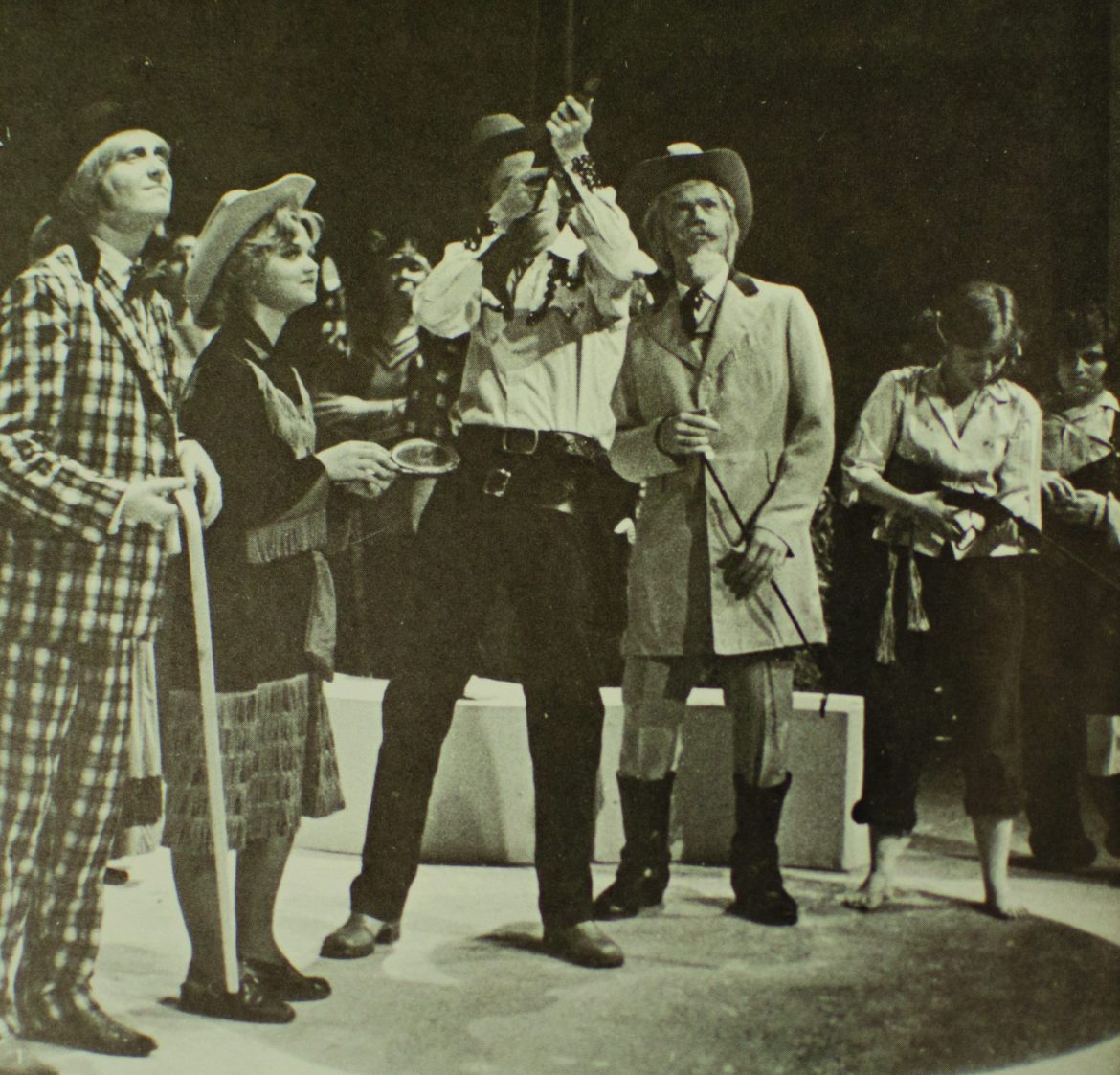In 1975, Harding premiered “Annie Get Your Gun” as its Bison-tennial Homecoming performance. Forty-two years later, a revival of the play is taking the stage in the Benson Auditorium.
The production follows sharpshooter Annie Oakley’s rise to fame in Buffalo Bill’s Wild West show, and her romance with fellow sharpshooter Frank Butler. Stereotyping, racism and equality emerge and color the characters’ dialogue and storylines. According to members of the production, those themes serve as the play’s immortal appeal. To director Britton Lynn, the male and female dynamic is a timeless topic, effortlessly satirized and explored by the play’s romantic leads.
“These are universal stories. They like each other, she’s better than him, he doesn’t know how to deal with it,” Lynn said.
Freshman Allie Scott, the actress behind the titular character, said that Oakley’s complexity compliments the topics of love and relationships.
“She falls for this guy, and realizes that she would like someone to take care of her,” Scott said. “She has a lot of layers. She’s very caring for the people around her. There are a lot of different parts of her that I get to bring out. She’s a very complex character. She gets really vulnerable; and you also get to see her fall in love for the first time with somebody.”
Falling in love is ubiquitous to the human experience, and reveals why “Annie Get Your Gun” has maintained its popularity since the 1940s. Since then, human rights issues such as racism and gender equality have remained tenuous, and Harding’s Homecoming production grapples with them in song. Producer Cindee Stockstill praised how the play handles such diverse and enduring elements.
“It deals with how we treat one and other, no matter what our ethnic background is,” Stockstill said. “It shows that you need humility when given great talent. However, this one isn’t overly preachy. For those of us who are Christians — it infuses everything we do.”
Due to the evolving language regarding civil rights, the musical’s script underwent alterations throughout the years, often on Harding’s stage. Director Britton Lynn noted the necessity for change.
“The 1946 production was problematic. It’s views on race relations were very out of date,” Lynn said. “It was updated in the 90s, and scenes were added to still deal with the issue. They became more of a commentary of how stereotyping impacts individual people.”
Another welcome change came in the form of an increased production budget that enabled the production team to create an atmosphere of spectacle.
“The design concept was of a Wild West show, a circus, and the Dixie Stampede,” Stockstill said. “It also has humor, good singing, charming characters, surprise guest artists. It’s part of the Homecoming experience.”
Harding’s 2017 Homecoming production is complex, with a tenured past. Though it touches on social issues, Lynn maintained that it is not simply social commentary.
“The social commentary in the production is just another layer. It’s not a play about social issues,” Lynn said. “ It’s about learning to play nicely with other people. It’s about what it means to share and to serve.”
What makes the play a success, regardless of differences in production or dialogue, is its message: to love others.
“Our director was giving us notes after a big rehearsal, saying, The core of the show is ‘what greater love is this, to lay down one’s life for their friends?’” Scott said. “‘Love is a service to somebody.’ Annie and Frank really go through that in the show.”
“Annie Get Your Gun” appeals to many people for many different reasons; some for its commentary on relevant social issues, others for its comedy, and still others for its timeless romance. Differences in beliefs and acceptable practices diversify its past. However, its message unites viewers across the ages.
“‘Annie Get Your Gun’ is a classic American musical. Everyone can relate to having a first love,” Scott said. “But, not the worldly kind of love that media and culture project. It’s that Godly, sacrificial love. It’s unconditional. It’s love that conquers all.”
